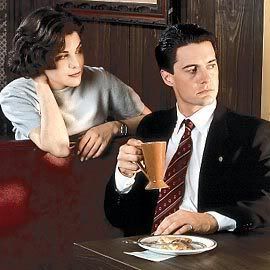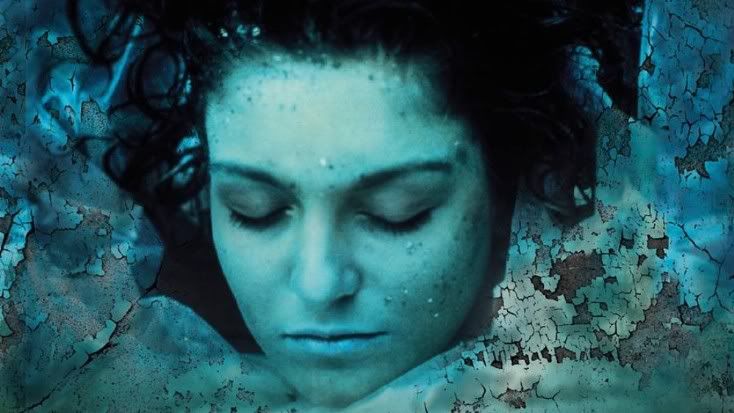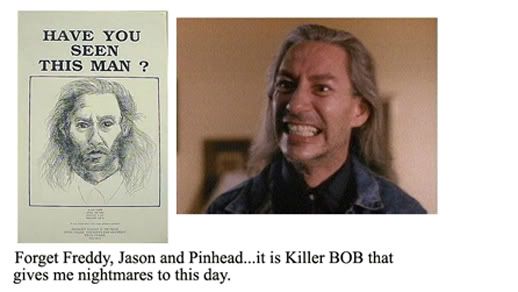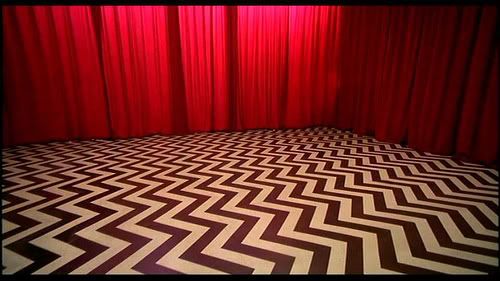Twin Peaks: 20 Years of Mystery, Murder and Damn Fine Coffee
Twin Peaks, the television series that changed American television forever, debuted twenty years ago this week on the ABC network. Back in the early 1990’s, ABC was dead last in the ratings, and they were willing to take chance on something a little bit different. Conceived by cult film director David Lynch and television writer Mark Frost, Twin Peaks was a sort of 1940’s/50’s noir mystery, coupled with satire of soap opera conventions, and with more than a tinge of supernatural horror thrown in the mix. Moving at a leisurely pace, the show unfolded before the American public, who were enraptured, perplexed, disgusted, and ultimately apathetic in the end. Lasting only for 14 months and 30 episodes, Twin Peaks was a star that burned hot and bright, yet died out fast. Yet the influence of Twin Peaks remains strong to this day; most shows today that would be considered cult favorites owe a great debt to Peaks for paving the way, and proving that television can indeed be art and not just something totally disposable. It can affect the viewer in a profound way, they way a great novel or film can. Television no longer had to be a place to “shut off your brain.” Television could live up to the potential that the medium always had.

When Twin Peaks premiered on ABC as a mid season replacement on Easter Sunday, 1990, I was all of 15 years old. Raised on a steady diet of terrible 80’s television like Facts of Life and Growing Pains, the idea that a television show could blow me away and transport me like a film could was not something I had ever considered before. In other words, I was at just the right age for something like Twin Peaks to come along and knock my socks right off. The hype machine leading up to the premiere was formidable, although a lot of it just made me shrug and just say “whatever. I don’t get it.” It wasn’t until my television hating older brother told me that I just had to watch this show; “David Lynch is behind it. He made Blue Velvet and Eraserhead! It’ll be like something you’ve never seen before!” Well, I had no idea what Blue Velvet or that Eraser thing was, but If this was gonna be something cool and new and weird, I wanted to be in on it from the get go. And I was not disappointed. Twin Peaks hit my pimply teenage ass like a lightning bolt, instantly making me realize how lame just about everything else on television really was. And for a long time after, the television landscape was pretty much dead to me, with nothing being able to come close to the magic that was Twin Peaks for nearly a decade.
The pilot episode opens with the discovery of the body of teenage homecoming queen Laura Palmer, naked and wrapped in plastic and lying on a rocky beach in a small town in the Pacific Northwest. Unlike most other murder mysteries I had seen, the discovery of Laura’s body and the news of her murder actually had an emotional impact; every single character on this show was affected by this death, and as a viewer, you felt it too. Unlike so many crime shows, her tragic death was not forgotten about by the next week’s episode, nor was it just an after thought for Angela Lansbury on Murder She Wrote. Laura Palmer may have been dead from frame one, but she was the central character of this series. Brought in to investigate her murder was FBI Special Agent Dale Cooper, played by Kyle MacLachlan, whose characterization of Cooper was essentially channeling series creator David Lynch’s personality; a mix of oddball and boy scout. Always speaking into his mini tape recorder to his mysterious off screen secretary Diane, either about how good the coffee and cherry pie were at a local eatery or on the plight of the Tibetan people, MacLachlan’s portrayal of Agent Cooper still stands as one of the great television performances of all time. Agent Cooper was quirky way before television even did quirky.

That pilot episode, which was shot unlike any other television series before it (and which still totally holds up as a film to this day) got the kind of ratings that a Superbowl might get today. At least for that very first episode, America was willing to embrace something weird that wasn’t a sitcom or a drama or a soap, but something that was an odd combination of all of those things. Today, the idea of combining genres is a given, lots of shows do it, but back then, everything needed to fit into its properly defined box, something Twin Peaks refused to do. While the pilot episode got the highest ratings, it was the end of the third episode, where Agent Dale Cooper has a psychedelic dream sequence, complete with a backwards talking dancing midget, that really had people talking. Nothing that surreal had ever aired like that on Prime Time TV before, and America let out a collective “Wtf!?!?” Many soccer moms and the like abandoned this show at this time, but I, and many others like me, became truly hooked for the long haul right at this moment. Those of us who stuck with it knew that Twin Peaks was unlike anything we had ever seen before, and we were witnessing the birth of something special. As that first season progressed, Twin Peaks managed to pull in decent (but not spectacular) ratings, and the phrase “Who Killed Laura Palmer?” was part of the cultural zeitgeist. Creator David Lynch and the cast of the show were on the covers of Newsweek, Rolling Stone, Time Magazine, you name it. People held Twin Peaks viewing parties, eating doughnuts, cherry pie and sipping coffee, all food items the show fetishized ad nauseum. (I myself had at least three of these viewing parties, and somewhere in my garage is a naked Barbie doll, wrapped in plastic wrap with blue lips, a prop symbolizing Laura from one of those long ago gatherings) Despite all this insane pop culture buzz, the show was still not a shoe in for a second season, and many, many people were pissed off at the end of the first season, as the question of who killed Laura was no where near being answered. As for me? Part of me never wanted to know….not knowing was all far too much fun.

ABC begrudgingly renewed the show for a second season, but despite the decent ratings against then juggernaut network NBC, and an avalanche of hipster buzz, Twin Peaks was a show the network secretly kind of hated. It never fit in with their squeaky clean All American image (at the time, this was the network of Full House, Step by Step and McGyver) However, they knew that they had to renew it or look like assholes. Over that summer hiatus between the first and second season, David Lynch’s daughter Jennifer wrote a series tie in novel, The Secret Diary of Laura Palmer, which covered the last five years of Laura’s (incredibly fucked up) life, as well as an audio tape with the recordings of Agent Dale Cooper. I devoured them both, reading and listening to them over and over, looking for clues, debating with my equally Peaks obsessed friends. Twin Peaks was a multi media experience before anyone had heard the term. So they renewed it and stuck it on the worst night to place television-Saturday night. Even twenty years ago, no one watched TV on Saturday night. In the middle of its popularity, they sent Twin Peaks out to pasture to die a quiet death.
So as season two debuted with a quiet whimper ratings wise, and STILL no answer in site to the series’ central mystery, any and all mainstream viewers Peaks had jumped ship en masse. All that were left were the die hards like me, the ones for whom the show was a revelation, whose layering of mystery upon mystery was a welcome reward and not a chore to watch. It has become popular opinion that season two of Twin Peaks was a major step down in quality, but in my opinion that is nonsense; the first ten episodes of that second season, the ones barreling down to revelation of Laura’s killer, are just as strong, if not stronger, than anything in season one. In fact, the episode that reveals the culprit of Laura’s murder remains one of the strongest and most memorable episodes in television history to this day.
After the resolution of the “Who Killed Laura Palmer?” storyline however, the bottom did drop out of the show. With the revelation of who had killed Laura Palmer, David Lynch and Mark Frost had told the story they had wanted to tell, and the writing staff had to come up with something for these characters to do, and to say they struggled to hold together a narrative of some kind is putting it mildly. Left with dangling subplots to resolve, in retrospect they did their best with not only the network not showing interest in the show at all any more, but with the series creators not really caring anymore either. Lynch and Frost were forced to reveal the identity of Laura’s killer prematurely, and after doing so felt the writing was on the wall and left the series in all but name. Twin Peaks was constantly moved around the schedule during this period, as ABC burned through the remaining episodes, whenever the first Gulf War wasn’t pre-empting it that is. Still, even crappy post-Laura Twin Peaks was better than just about anything else on TV at the time, so those of us invested in it stayed till the bitter end. And it wasn’t all for nothing; the last few episodes steered the course of this series more or less back on track, and reminded me more of the series that had debuted a year earlier. Lynch came back to direct that final mind fuck of an episode, that made the first season’s dream sequence look like Sesame Street. In that final hour, the series went out on a creative high note, even if it was shown as a movie of the week in the month of June, when all other shows had gone off the air. An inglorious end to a revolutionary show.
With the series over, co-creator Mark Frost was quoted as saying “we didn’t change television one iota” While that might have seemed true in 1991, time has proven Frost wrong; his and Lynch’s fingerprints are all over shows ranging from The Sopranos to Lost to Battlestar Galactica. Television is no longer the exclusive domain of brain dead entertainment; there are glimmers of intelligence and real craft going on in the world of TV now, and one might say that spark was lit twenty years ago in a small town called Twin Peaks.

